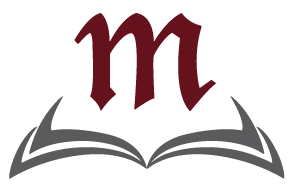For Lebanon Middle School social studies teacher Kara Clark, this school year isn’t just about teaching and learning. For her, it’s about teaching while learning. That’s because Clark is one of approximately 20 teachers from across the state selected to participate in a teachers scholars program through the University of Louisville’s McConnell Center.
Participants attend monthly virtual seminars and two in-person conferences where they hear from history scholars and authors as they study the various influences on the forming of the U.S. government. The program will conclude with a summer trip to Philadelphia.
“Obviously, I’m getting a better understanding of how the government was set up and where the influences came from, but I’m really excited about working with other teachers,” Clark said. “They’ve built in time to discuss with each other how we would use that information in our classrooms. There are other 8th grade social studies teachers there so I’m hoping to network and bounce ideas back and forth with them.”
The program will use Russell Kirk’s The Roots of American Order as its central text.
As Clark explains it, the program is aimed more at providing teachers with greater content knowledge as opposed to focusing on teaching methodology.
“This is just such a deep dive into my curriculum,” Clark said, adding that the sessions and discussions feel “scholarly”.
While the program is still just beginning, Clark said that it has already had an effect on her teaching. The first session dealt with religious influences on early America and Clark’s classes are currently studying New England and the Puritans.
“Even though we’re not quite to the constitution yet, I can already pull in some of that background information,” she said.
Clark also said she sees the sessions especially having an impact later in the semester where she already has lessons planned dealing with the influences surrounding the founding of the U.S. government.
“This is just going to add to me being more knowledgeable and hopefully being able to convey that information to the students a little bit better,” she said. “So that way they know that while we think of our republic as our own, we borrowed and we’ve taken what has worked from other peoples.”
In fact, Clark says that the historical influences she’ll study have a direct connection to what she feels is the most valuable content her students will learn.
“I’ve always told my students the most important thing that I teach them, the thing that affects them the most is the Constitution, Bill of Rights, basically that whole unit that we teach,” she said. “It impacts their lives and they have to understand that for our republic to continue to strive. It affects their daily lives and it’s going to affect their future.”
While not all of the information that the teacher scholars will explore will find its way into her teaching, Clark said she sees a value in all teachers continuing to learn more about their content.
“It dives deeper than I have to touch, but I think having that deeper understanding makes me a better teacher,” Clark said. “It’s important that teachers continue learning.”
Clark also noted the importance of having discussions with others who are looking for a deeper understanding of history.
“It was refreshing to be around people who were so knowledgeable and open [...] The professor who spoke at the first meeting had a few book references that I’ve already put in my Amazon cart,” Clark added with a laugh.
While history itself doesn’t change, understanding and interpretations of the past do, which is why Clark sees an importance in continuing to develop her own content knowledge.
“As a teacher, learning never stops. And as a parent it’s important to know that teachers are still learning,” she said. “I want my son to have the most knowledgeable teachers that he can have.”

